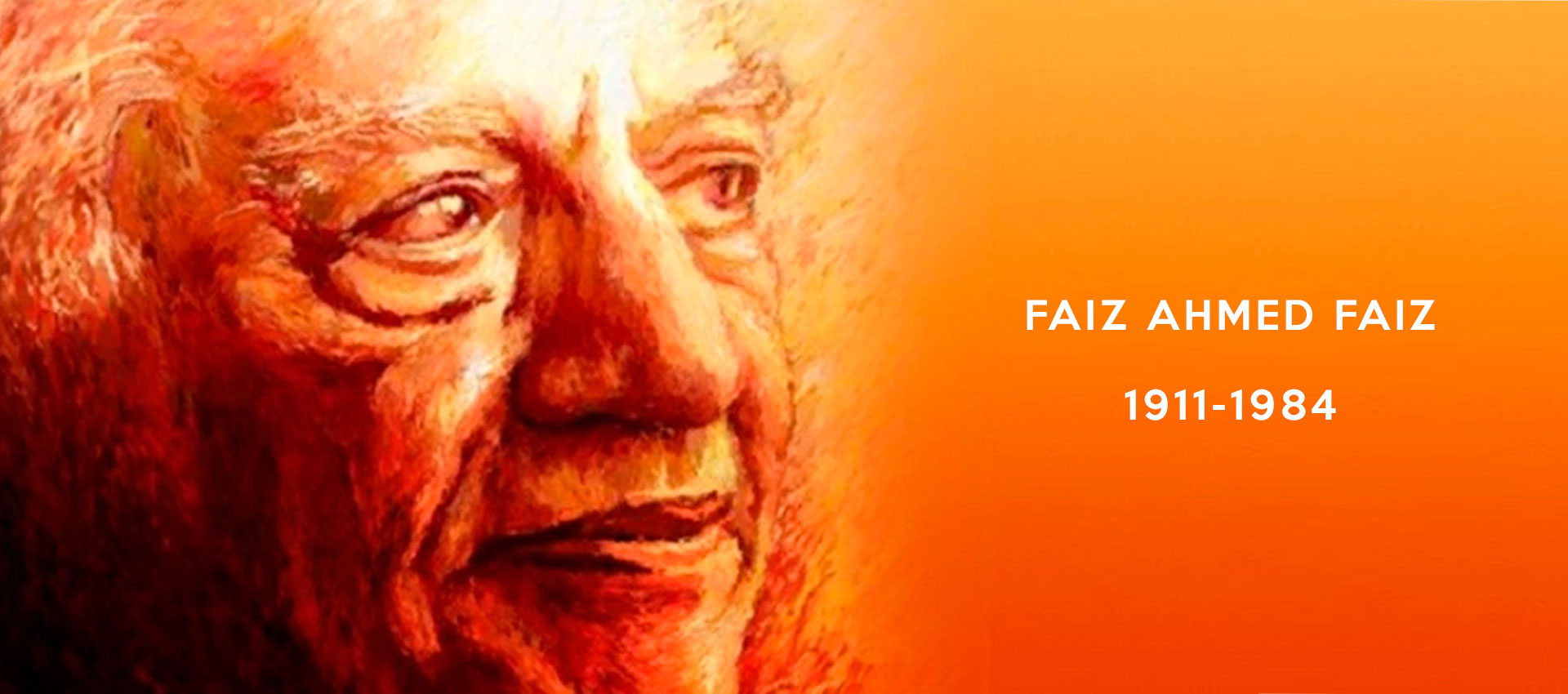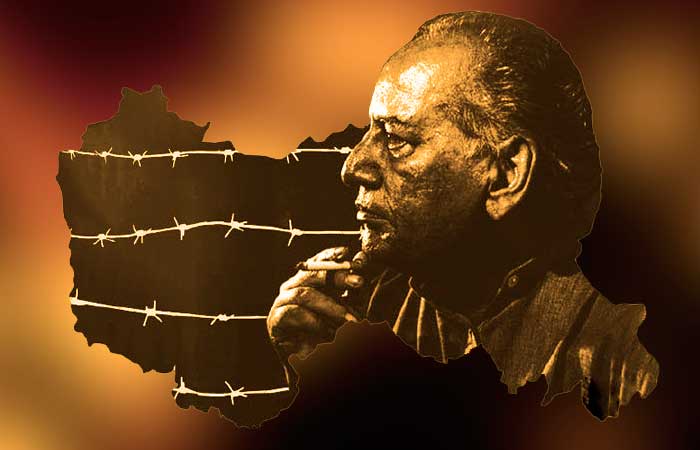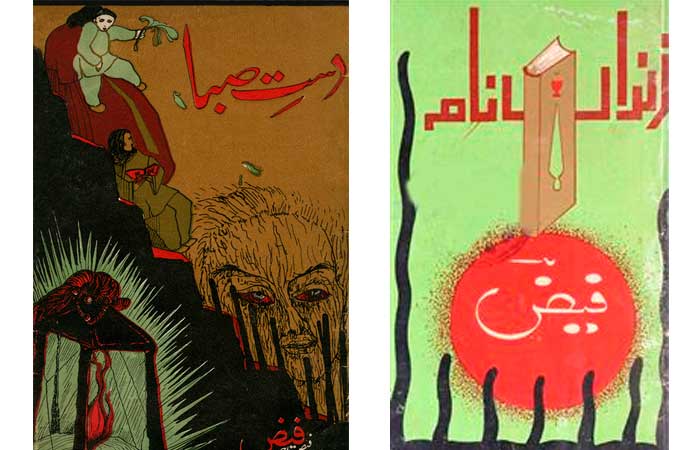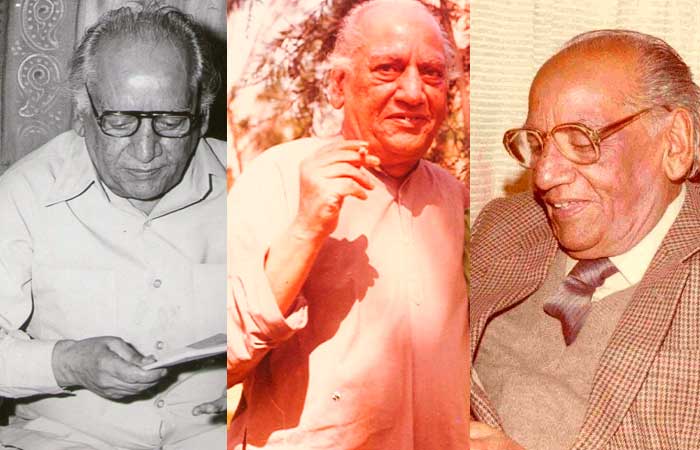
in Books and Magazines
Faiz Ahmad Faiz - The legendary poet of Pakistan

Mutaher Mehboob

Overview
Faiz Ahmed Faiz, regarded as one of the very few anti-capitalist thought-provoking poets in Pakistan, was an Urdu poet and author. He has written 8 books and numerous poems in his lifetime. A true Marxist, he often spoke about the failures of Capitalism with regards to the sub-continent through his poems and books.
Faiz Ahmed Faiz was nominated for the prestigious Nobel Prize in Literature in the year 1984, a few days before his death. Other than receiving the eternal accolade of respect from people of the sub-continent, he received many national and international awards during his lifetime and even after his death.
His poetic style, which was conversational, made it easier for the common man to relate to his thoughts, and soon he became one of the most famous poets in the subcontinent. He was a part of the historical, literary movement, the "Progressive Writers' Movement" or Anjuman e Taraqi Pasand Musanifeen e Hind, which was the 2nd largest movement after Sir Syed’s Education Movement for the promotion of Urdu language and literature.
Faiz Ahmad Faiz has been called “the greatest poet of our nation” and “Poet of the East” alongside Allama Muhamad Iqbal because his work served as the base on which Pakistan’s Literature thrived and progressed. He breathed his last on November 20,1984 in Lahore.
Personal Life
Faiz Ahmad Faiz, on February 13, 1911, in Sialkot, was born to a devoted Muslim Family in the then united India. He lost his parents early in his childhood who were wealthy landowners in the subcontinent and also, appreciators of literature and education. His father was a notable legal counselor and a part of the noble literary club, which also included the national poet of Pakistan, Allama Muhammad Iqbal.
Also Check out: Spa in a Bottle Products in Pakistan - All the Face, Hair, Body and Skin Products
Faiz studied Urdu, Arabic and Persian during his early years of education and later pursued a Bachelor's Degree in Arabic, followed by a Master's degree in English and a second Master's degree in Arabic from Lahore.
After graduating, he began his professional life with a teaching career at colleges in Amritsar and Lahore. His wife was a British expatriate who converted to Islam before marrying him and later had two daughters with, Saleema and Moneeza Hashmi.
Faiz’s Services other than Literature
Faiz was awarded a British Empire Medal for his services during World War II in the British Indian Army. In 1943 he was promoted to Major and very shortly after, to Lieutenant Colonel in 1944.
After leaving the military following the subcontinent split in 1947, Faiz Ahmed Faiz became an editor in "The Pakistan Times", one of the first English Newspapers in Pakistan, which spoke about common social issues. The elebrated poet played a notable part in making the newspaper one of the most influential ones during its time and surviving the criticism of it being an American plot against the Muslims.
Also Check out: Bano Qudsia - The legendary name of Pakistan in Urdu Literature
Faiz Ahmad Faiz has also served as the Secretary and later as the Vice President of the Pakistan National Arts Council. It was the same year as joining as the Vice President at PAC that he was made Rector of the Abdullah Haroon College.

Faiz’s poetry
Faiz, impressed by Ghalib, began his poetic writings on the traditional topics of love, betrayal, and beauty. It was not long before he realized that he can make a difference in the lives of the people and change their mindsets through his words and thus began diversifying his poems and writing more about politics, the shortcomings of Capitalism, communities, oppression, etc.
After being arrested in 1951 and spending 4 years in jail with a death sentence, under the Rawalpindi Conspiracy Case, Faiz Ahmad Faiz came back as a changed man after his release. He found inspiration for some of his best work in those 4 years, which he says, refined the way he looked at life.
Dast-e-Sabah and Zindan Nama, two masterpieces of literature, talk about the poet’s life in imprisonment.
Faiz’s Literary Awards
The awards that Faiz Ahmad Faiz has been so far awarded with include, the MBE in 1946, Nigaar Awards, 1953, the Lenin Peace Award, awarded by the Soviet Union in 1962 (after Faiz’s work was translated into Russian), HRC Peace Prize, The Lotus Prize for Literature, 1976, Nishan-i-Imtiaz (which is the highest civilian award in Pakistan) in 1990 and the Avicenna Prize in 2006.
Faiz Ahmed Faiz and Pakistan People’s Party
Faiz Ahmad Faiz was a celebrated intellectual during Zulfiqar Ali Bhutto's reign, as both the men shared the same ideologies, Bhutto was an anti-capitalist like Faiz. During Bhutto's reign, Faiz was given an honorary position at the Ministry of Information and Broadcasting (MoIB). In 1972, Bhutto had him appointed as a cultural advisor at the Ministry of Culture (MoCul) and Ministry of Education (MoEd).
Zulfiqar Ali Bhutto's government failed, and he was removed by Zia-ul-Haq in 1977 which really upset Faiz as he had strong ties with Bhutto, and in 1979 when Faiz learned that Zulfiqar Ali Bhutto had been executed, Faiz left Pakistan and went to Beirut, where he lived for two years, providing editorial services for the magazine "lotus."
During the 1971 war, Faiz Ahmad Faiz wrote patriotic and eye-opening poems while being deeply disturbed because of Bangladesh's separation from Pakistan. PPP declared 2011 as "the year of Faiz" and established permanent "Faiz chairs" in universities, to permanently honor the man.
Translations
Faiz's work has been translated into many languages, with Russian being the most prominent one since it earned him the Lenin Peace Prize in 1962. He had great relations with Russia and even after his death, it is not uncommon for Russians to refer to him as "our poet," this title has been used for Faiz multiple times by the people of Russia on numerous public occasions.
Other languages in which his work has been translated include English, Baluchi, and Punjabi.
Faiz himself has translated many poems into Urdu, showing his respect for other poets and also his love for good poetry.
Utilization of Faiz’s work
Faiz Ahmad Faiz’s poetry sparked many intellectual debates and also inspired artists, musicians, and film and theatre directors. A number of movies and plays have been made solely based on his work and words.
Whether through inspiration by his work or by direct utilization of it, some of the best dramatic productions like Hum Dekheinge by Iqbal Bano, Dard aayega Dabbe Paon by Sheela Bhattiya and Unfreedom: The Film by Raj Amit Kumar have come to life based on Faiz’s work. Even Faiz’s letters to his wife were so poetic that they inspired the play of Chand roz aur meri jaan.
Some Final Thoughts
Faiz Ahmad Faiz was a humble and simple man who was, at the same time, fierce, thorough, and self-aware, as evident by his life and works. In retrospect, Faiz did a lot for this country, its people, and its beloved Urdu language. Sadly, our younger generation has no idea who their true leaders and benefactors were and where they should gather inspiration from or look up to.
We do have people working for the furtherance of Urdu Language, but no one has claimed to carry forward Faiz and great intellectuals like Faiz's legacy to build on their work and genuinely serve this beautiful language and inculcate its love in the people of our country.
Also Check out: Garnier - The best Hair color brand for you in Pakistan

